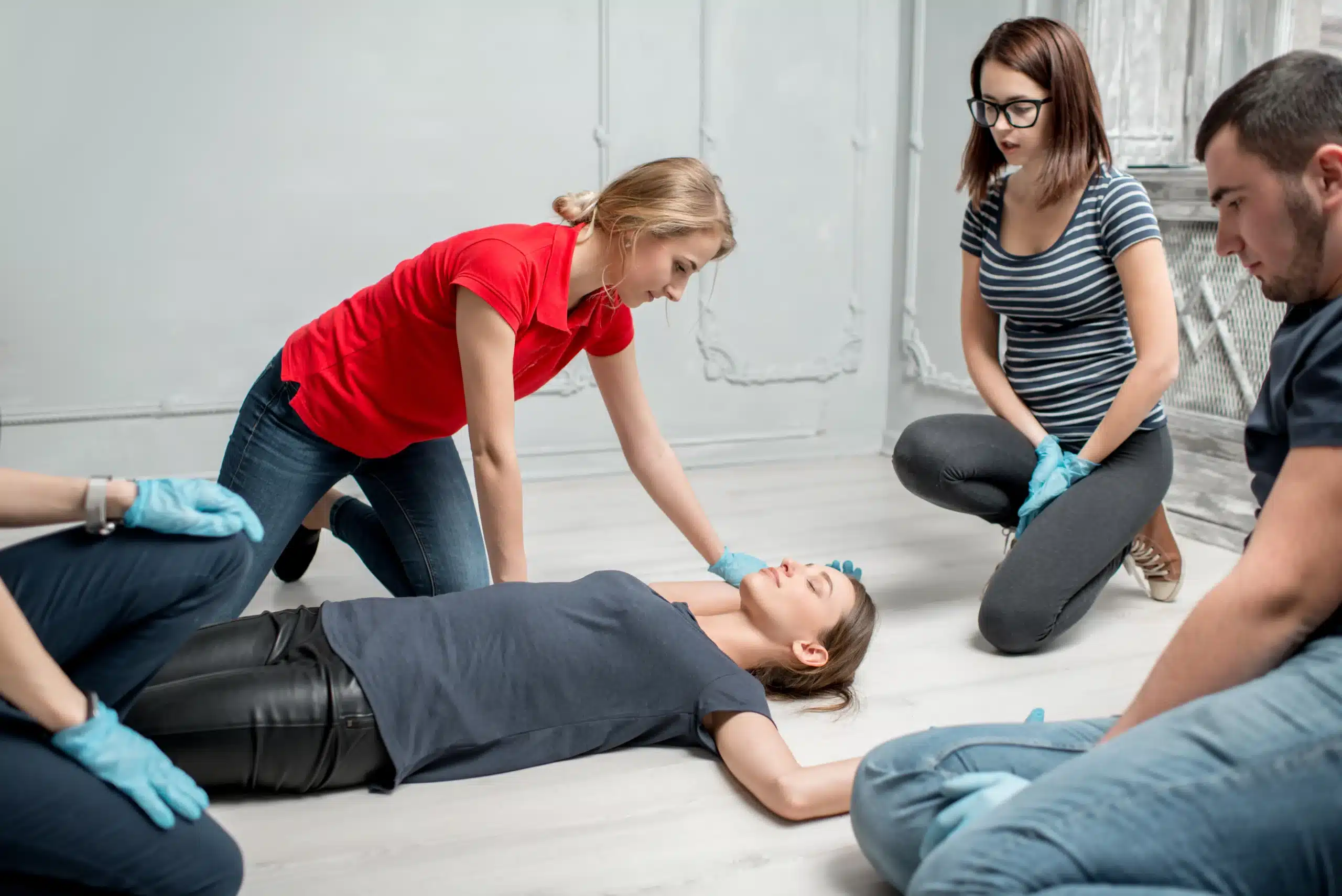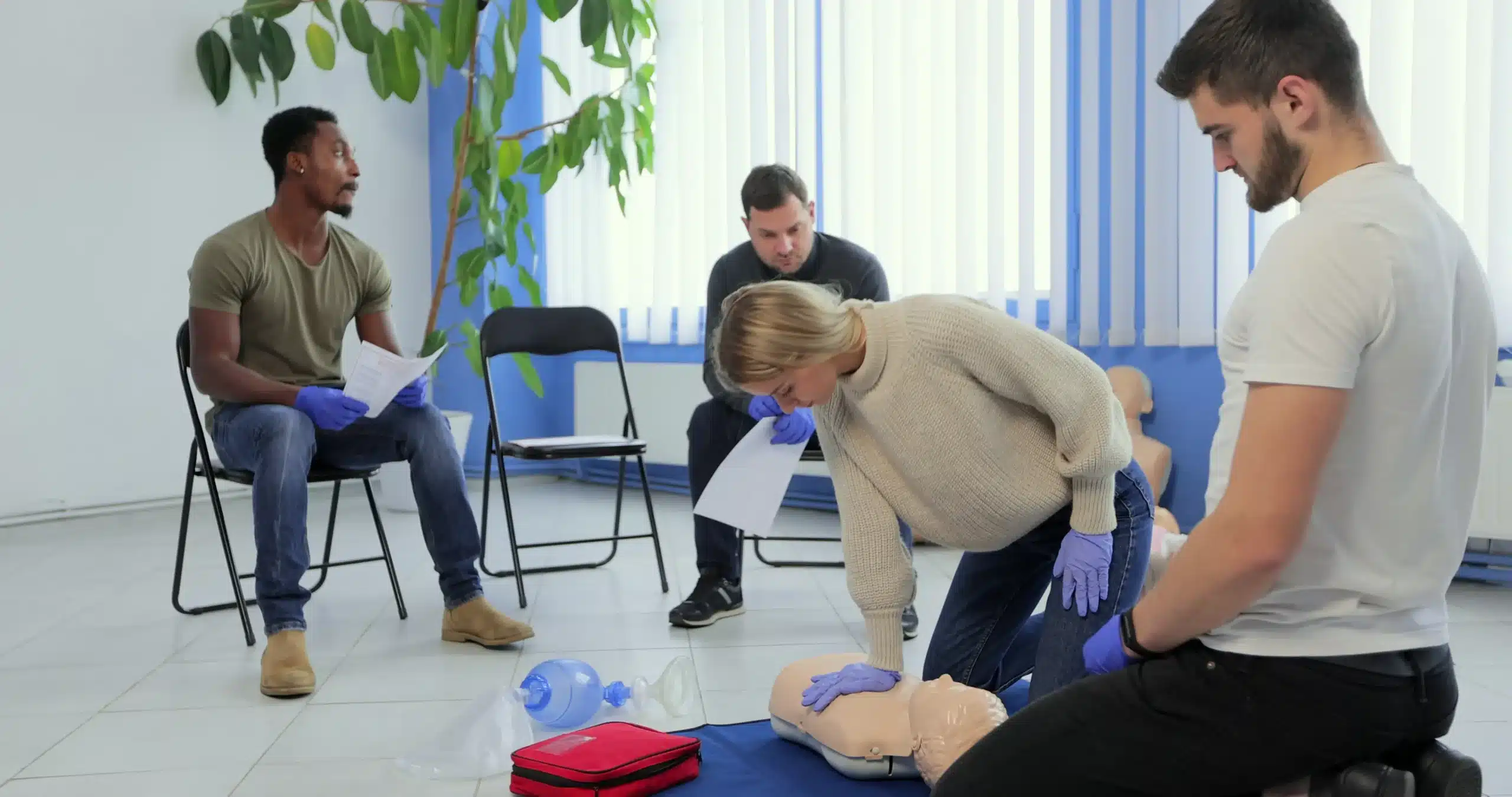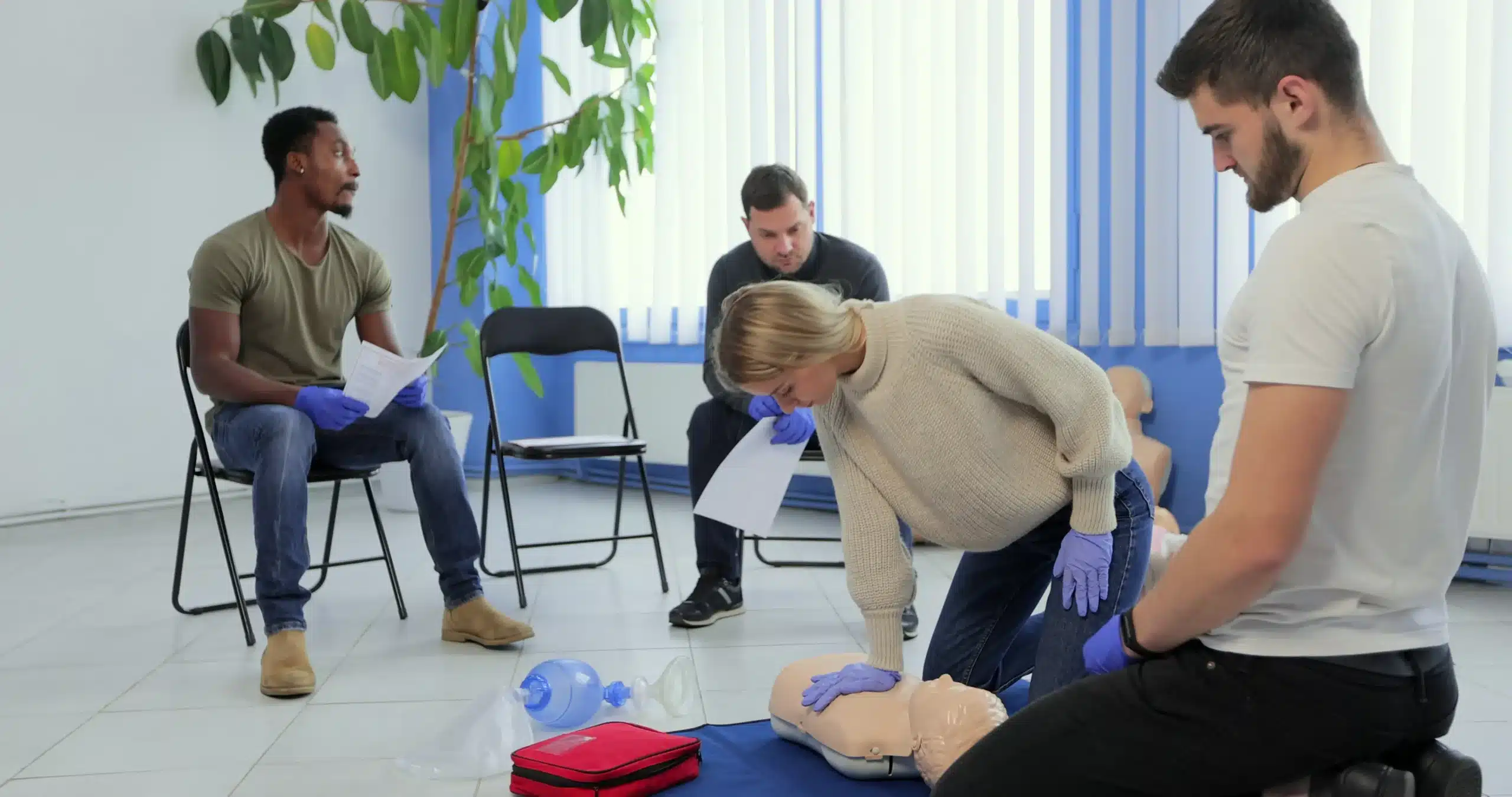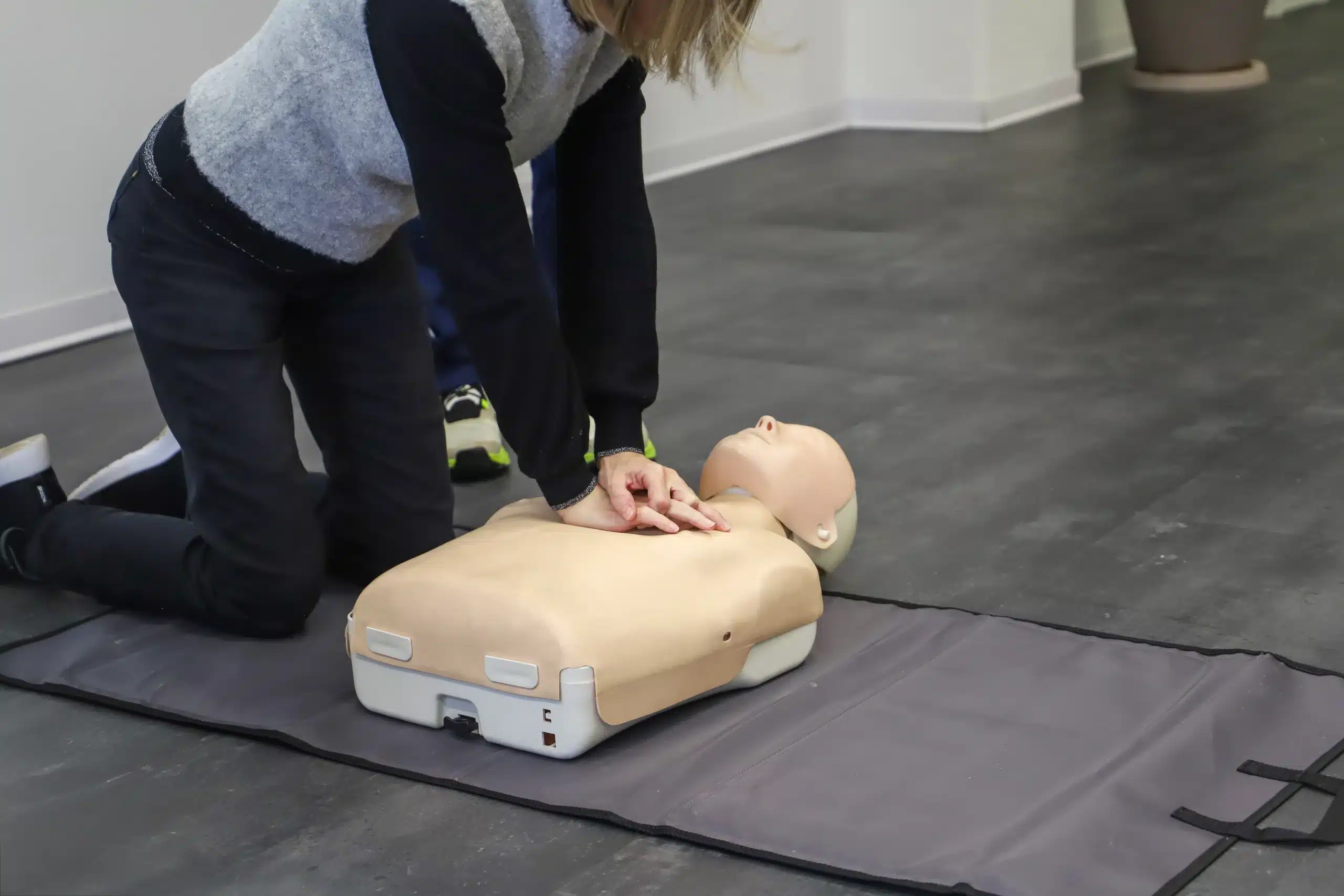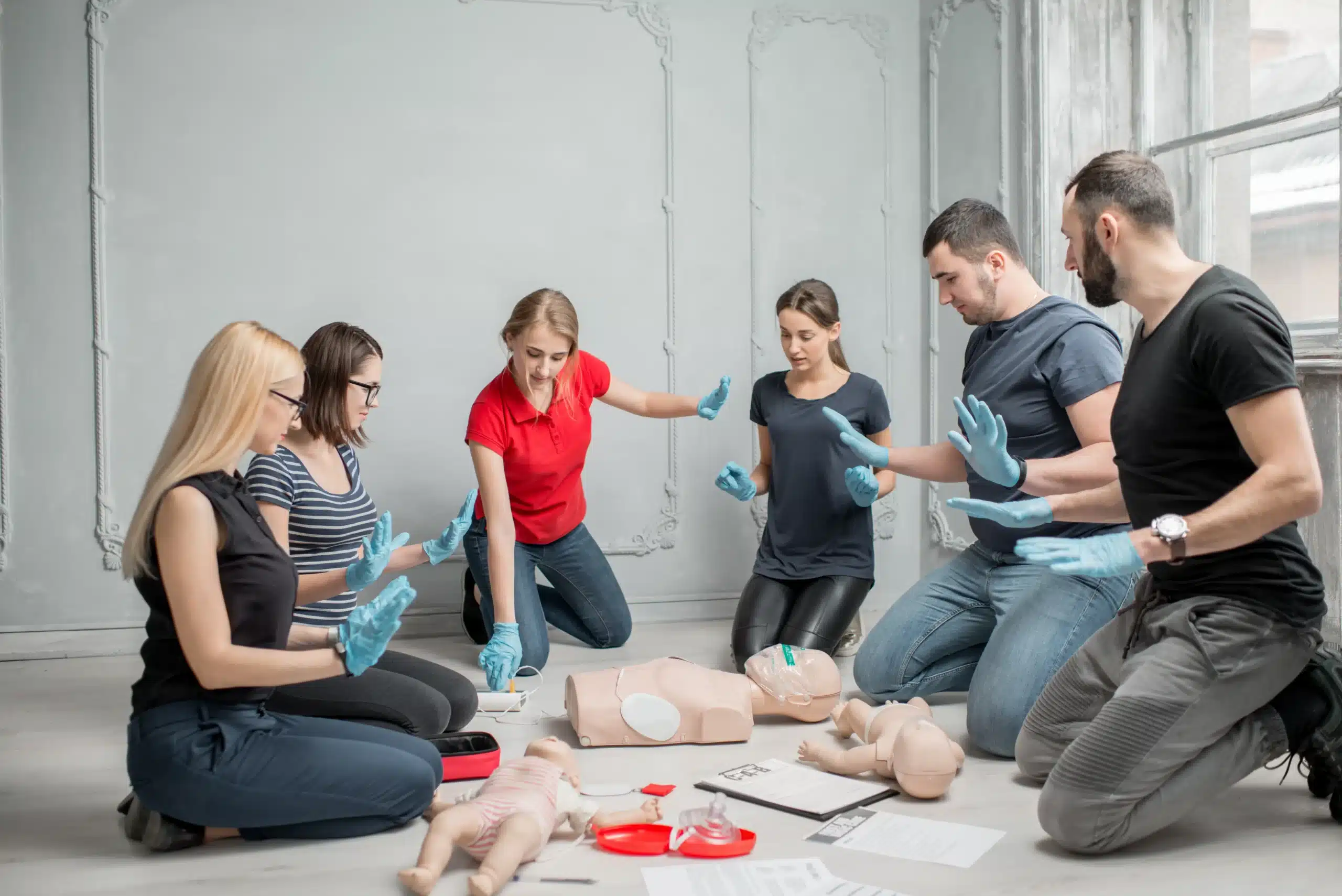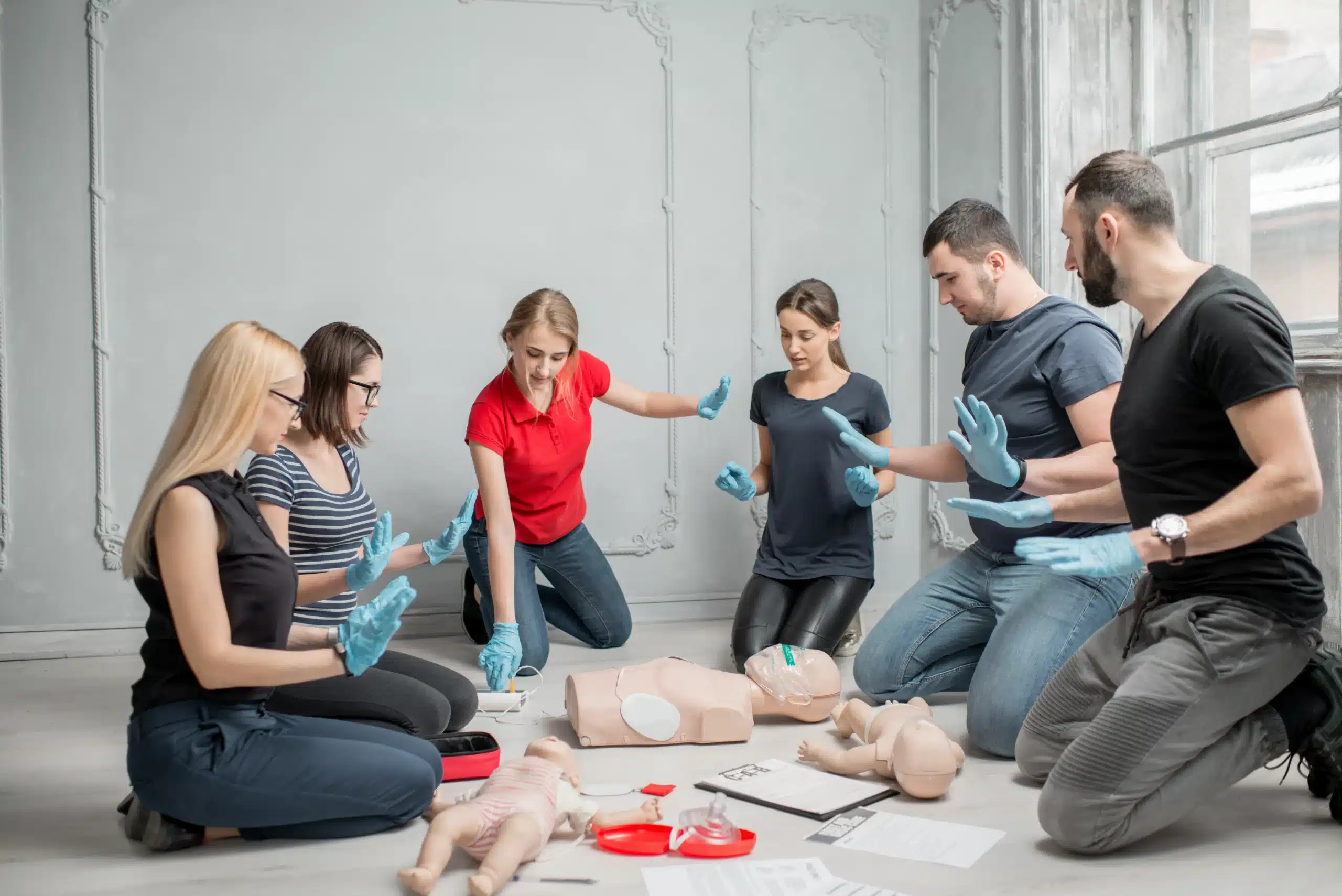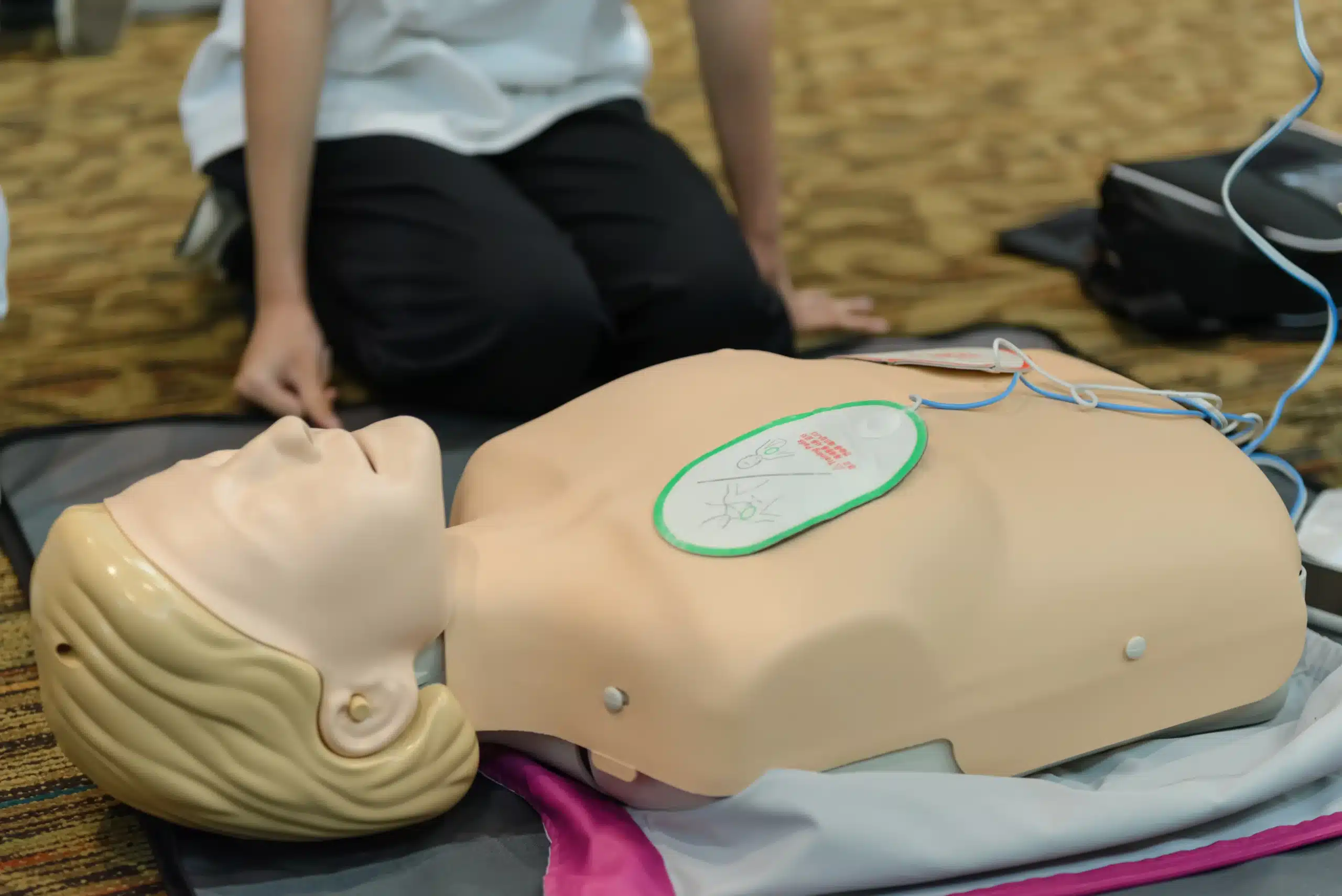Are you a healthcare professional in Berkeley looking to enhance your skills and advance your career? Providing top-tier patient care requires staying ahead of the curve, especially when it comes to critical situations. Advanced cardiac life support (ACLS) certification is a crucial asset for any healthcare provider in Berkeley, equipping you with the knowledge and skills to handle complex cardiovascular emergencies. This comprehensive guide explores the ins and outs of ACLS certification in Berkeley, from understanding the core curriculum to finding the right training program for your needs. We’ll delve into the benefits of ACLS, discuss the differences between ACLS and BLS, and provide valuable resources to help you succeed in your training. Join us as we explore the world of advanced cardiac life support in Berkeley and empower you to provide the best possible care.
Key Takeaways
- ACLS certification equips you to handle emergencies: It builds upon basic life support skills, covering advanced techniques like ECG interpretation and medication administration, crucial for improved patient outcomes.
- Berkeley offers accessible ACLS training: Many providers offer flexible online and in-person courses, accommodating busy schedules and various learning preferences. Research providers, considering factors like cost, schedule, and the inclusion of hands-on practice.
- Preparation is key for ACLS success: A solid understanding of BLS is a must. Reviewing relevant pharmacology and ECG interpretation beforehand can give you an edge. Actively participate in simulations and ask questions to maximize your learning.
What is Advanced Cardiac Life Support (ACLS)?
What is ACLS and why is it important?
ACLS stands for Advanced Cardiovascular Life Support. It’s a specialized course designed to equip healthcare professionals with the skills to manage and treat patients experiencing severe cardiovascular emergencies. These emergencies can range from heart attacks and strokes to sudden cardiac arrest. Having a team trained in ACLS is crucial for any healthcare setting. It ensures a coordinated and effective response, ultimately improving patient outcomes and survival rates. ACLS certification demonstrates a commitment to providing high-quality patient care and is often a requirement for many healthcare roles. If you’re a healthcare provider, understanding the importance of ACLS can significantly impact your career.
Key skills gained in ACLS training
ACLS training isn’t just about lectures and textbooks; it’s a highly practical course emphasizing hands-on learning and real-world application. You’ll learn essential skills like recognizing and interpreting cardiac rhythms, administering medications, and using advanced airway management techniques. The course also focuses on effective team dynamics and communication, crucial for coordinating care during a crisis. Through realistic simulations and case studies, you’ll gain the confidence to make quick, informed decisions under pressure. ACLS training prepares you for the diverse challenges you might face in a real emergency.
How ACLS differs from BLS
While both Basic Life Support (BLS) and ACLS focus on life-saving techniques, ACLS builds upon the foundation of BLS. BLS generally covers the initial steps in a medical emergency, such as CPR and using an AED. ACLS delves into more advanced interventions, including intravenous drug administration, electrocardiogram (ECG) interpretation, and advanced airway management. Think of BLS as the first response, while ACLS provides the next level of care for complex cardiovascular emergencies. If you’re considering ACLS certification, a solid understanding of BLS is a prerequisite. It provides the essential groundwork for the more advanced concepts covered in ACLS.
ACLS Certification in Berkeley: Find the Right Course
Berkeley’s Healthcare Landscape
Berkeley is known for its innovative spirit and focus on health, making high-quality Advanced Cardiac Life Support (ACLS) training essential. With institutions like the University of California, Berkeley, and a robust network of hospitals and clinics, the demand for skilled medical professionals is always high. ACLS certification plays a vital role in ensuring the city’s healthcare system can handle cardiac emergencies. These courses contribute to a culture of preparedness and strengthen Berkeley’s reputation as a leader in healthcare.
Demand for ACLS-Certified Professionals
ACLS certification equips healthcare providers with the practical skills and knowledge to manage complex cardiac emergencies. From understanding common ACLS scenarios to mastering essential interventions, ACLS-certified professionals are prepared to deliver timely and effective care. This leads to improved patient outcomes and a higher standard of care within the Berkeley healthcare community. Whether you’re a nurse, physician, or paramedic, ACLS
Common ACLS Training Misconceptions
Several misconceptions surround ACLS training. One is that ACLS is only for certain medical specialties. Many healthcare professionals, including emergency room physicians, anesthesiologists, critical care nurses, and paramedics, benefit from ACLS training. Another misconception is that ACLS is simply advanced CPR. While CPR is foundational, ACLS includes a broader range of skills, including ECG interpretation, airway management, and pharmacological interventions. Finally, some believe ACLS certification is permanent. However, recertification is crucial to stay up-to-date with evolving medical practices and maintain a high level of competency.
Top ACLS Certification Providers in Berkeley
Finding the right ACLS certification course can feel overwhelming, but understanding your options makes the process easier. Here’s a look at some of the leading ACLS certification providers in Berkeley:
Safety Training Seminars
Safety Training Seminars offers American Heart Association-certified ACLS courses right here in Berkeley (near Oakland and San Pablo). They also provide BLS, PALS, CPR, and First Aid training, making them a convenient one-stop shop for all your certification needs. Check out their low price guarantee.
American Heart Association (AHA) Training Centers
The American Heart Association offers ACLS certification classes in Berkeley, both online and in person. Going directly through the AHA often ensures you’re receiving the most up-to-date training and materials. You can find a list of AHA Training Centers on their website.
Local Hospitals and Medical Centers
Many hospitals and medical centers in Berkeley, such as Alta Bates Summit Medical Center and Kaiser Permanente, offer ACLS certification courses. These courses are often geared towards healthcare professionals working within their systems. Contact the hospitals directly to inquire about availability.
Online ACLS Certification Options
Online ACLS certification can be a flexible option for those with busy schedules. Several reputable providers offer online ACLS courses that combine online learning with in-person skills testing. Be sure to choose a program that includes a hands-on component, crucial for mastering practical ACLS skills. Look for online courses that use simulation technology and scenario-based learning.
Inside an ACLS Course: Structure and Content
This section explains what you can expect in a typical ACLS course. From core content to hands-on practice, understanding the structure and components will help you prepare and make the most of your training.
Core Components of ACLS Training
ACLS certification equips healthcare providers with the skills to manage cardiopulmonary arrest and other cardiovascular emergencies. The curriculum covers essential topics, including airway management, rhythm recognition, and pharmacology. You’ll learn how to interpret electrocardiograms (ECGs), administer medications, and provide effective basic life support during these critical situations. Understanding how to respond to common ACLS scenarios, like cardiac arrest, stroke, and acute coronary syndromes, is a cornerstone of the training. This foundational knowledge prepares you to deliver optimal care to patients in life-threatening situations. For more information on common ACLS scenarios, check out these helpful resources.
Hands-on Skills Practice and Simulations
ACLS training isn’t just about textbooks and lectures. It emphasizes practical application through hands-on skill practice and realistic simulations. These scenarios mimic real-life emergencies, allowing you to apply your knowledge in a controlled environment. You’ll work with a team, practicing essential skills like chest compressions, intubation, and defibrillation. Realistic simulations provide invaluable experience in managing complex situations and making quick decisions under pressure. This immersive learning approach builds confidence and competence, preparing you for the demands of real-world emergencies.
Team Dynamics and Leadership Training
Effective teamwork is crucial in high-stakes medical situations. ACLS courses incorporate team dynamics and leadership training to enhance communication and coordination during emergencies. You’ll learn how to communicate within a team, delegate tasks, and make critical decisions collaboratively. Understanding team roles and responsibilities is essential for smooth operation and optimal patient outcomes. Mastering effective communication during ACLS scenarios is a key focus, ensuring that teams can function efficiently under pressure.
Technology’s Role in ACLS Courses
Technology plays an increasingly important role in ACLS training, offering flexible learning options and enhanced resources. Online platforms and simulations provide accessible and engaging learning experiences. Online ACLS certification can be a convenient option, allowing you to study at your own pace. While online learning offers flexibility, it’s important to choose a reputable provider that aligns with American Heart Association guidelines. Our RQI classes are one example of how technology can enhance the learning experience and make ACLS certification more accessible.
Cost and Logistics of ACLS Certification in Berkeley
Getting ACLS certified is an investment in your career and your ability to provide critical care. Understanding the costs and time commitment involved will help you plan accordingly. Here’s a breakdown of what you can expect in Berkeley:
Average Costs and Inclusions
In Berkeley, the average cost for ACLS certification hovers around $290. This usually covers the online portion of the course, the in-person skills testing session, and your official certification card. It’s a good idea to confirm exactly what’s included with any training provider you’re considering. Some providers might offer payment plans or group discounts, so it’s always worth asking. For more information on pricing and inclusions, visit Berkeley CPR Classes.
Course Duration and Scheduling
One of the best things about ACLS courses is their flexibility. In Berkeley, classes are typically available daily, often with a range of times from 7 am to 6 pm. This makes it easier to fit the training into your busy schedule. The online portion usually takes around 3-4 hours to complete, and you can do this part at your own pace. The hands-on skills session with an instructor is shorter, usually clocking in at about 40 minutes. This combination of online learning and in-person practice offers a balanced approach. For more details on course structure and scheduling, visit the ACLS American Heart Association page.
Safety Training Seminars: Competitive Pricing and Flexibility
Safety Training Seminars is a popular choice for ACLS certification in Berkeley, known for its competitive pricing and commitment to keeping costs down. They aim to offer the lowest prices in Alameda County and even have a low-price guarantee. Their approach combines the efficiency of the RQI online learning system with the essential hands-on skills testing. This blended learning model provides a thorough and effective training experience. If you’re looking for an affordable and high-quality option, Safety Training Seminars might be a good fit. Learn more about their RQI classes on their website. For additional information on CPR, BLS, ACLS, and PALS classes in Berkeley and the surrounding Bay Area, visit Bay Area CPR.
Prepare for ACLS Certification: Prerequisites and Tips
Getting ready for your ACLS certification? Great! This section covers everything you need to know before you begin, from prerequisites to helpful study tips. We’ll make sure you’re well-prepared to tackle the course content and ace the exam.
BLS Certification: A Requirement
Before you begin ACLS training, you’ll need a current BLS certification. This isn’t just a formality; it’s a fundamental requirement. ACLS builds upon the foundational skills taught in BLS, so a solid understanding of basic life support is absolutely essential. Think of it as building a house: BLS provides the foundation, and ACLS adds the rest of the structure. Make sure your BLS certification is valid before enrolling in an ACLS course.
Recommended Prior Knowledge and Study Materials
While BLS certification is the main prerequisite, reviewing related knowledge beforehand can give you an advantage. A strong grasp of cardiovascular emergencies, pharmacology relevant to ACLS, and electrocardiogram (ECG) interpretation will make the course material much easier to understand. Many providers offer resources and study materials to help you prepare. For affordable options in Northern California, check out our CPR directory and our low price guarantee.
Tips for ACLS Training Success
Successfully completing your ACLS certification involves more than just attending the course. Active participation in scenarios and simulations is key. Don’t hesitate to ask questions – instructors are there to help you learn. If you’re taking the course online, create a dedicated study space free from distractions. Effective time management is also crucial, especially if you’re balancing work and other commitments. Take advantage of all available resources, including practice tests and review materials. For a fast and efficient certification process, consider our RQI classes. Have questions? Contact us—we’re here to support you.
Get ACLS Certified: The Process
Steps to Certification
Getting your ACLS certification is straightforward. You can enroll in courses offered by the American Heart Association (AHA) throughout Northern California, including Berkeley. Safety Training Seminars offers both online and in-person ACLS classes, giving you the flexibility to learn in a way that suits you best. The cost for ACLS certification is $290, which covers the online portion, in-person skills testing, and your certification card. With classes running daily from 7 am to 6 pm, finding a time that works with your schedule is easy.
Renewing Your Certification and Maintaining Skills
Your ACLS certification is valid for two years. To stay current and maintain your skills, you’ll need to complete an ACLS recertification course every two years. This refresher ensures you’re up-to-date on the latest advancements in emergency cardiac care.
Immediate Certification Card
A major advantage of taking your ACLS course with Safety Training Seminars is that you receive your certification card the same day you complete the course. This immediate access lets you quickly show proof of your qualification, so you’re ready to respond to cardiac emergencies.
Choose the Right ACLS Course in Berkeley
So, you’re ready to pursue your ACLS certification—great! Finding the right course in Berkeley depends on several factors. Let’s break down what you should consider when making your decision.
Factors to Consider When Choosing a Provider
Choosing an ACLS provider is a big decision. You want a program that meets your needs and prepares you for real-world scenarios. Think about what’s important to you in a learning environment. Do you thrive in a traditional classroom or prefer the flexibility of online learning? Consider factors like instructor experience, course materials, and the training center’s reputation. A solid understanding of how to respond effectively to common ACLS scenarios is crucial for any provider you choose. Finally, check if the provider offers continuing education to keep your skills sharp after certification.
In-Person vs. Online Options
Deciding between in-person and online ACLS training often comes down to personal preference and learning style. Online ACLS courses offer flexibility and self-paced learning, often using simulations and scenario-based modules. This can be a great option for those with busy schedules or who prefer to learn independently. However, some learners prefer the hands-on, interactive nature of a traditional classroom. In-person training allows for immediate feedback from instructors and the opportunity to practice skills with peers. It’s worth noting that while online certification is widely accepted, some employers may require in-person training, as explained in this article about different ACLS certifications. It’s always best to check with your employer or prospective employer to confirm their requirements.
Safety Training Seminars: Unique Benefits
For those in the Berkeley area, Safety Training Seminars offers a convenient and affordable option for ACLS certification. We provide American Heart Association certified courses, ensuring you receive high-quality training. Our courses are designed to be accessible, with various schedules and locations to choose from. We understand the importance of comprehensive training that prepares you for real-world emergencies. Our commitment to low prices makes quality ACLS training accessible. We also offer the innovative RQI program, a streamlined path to certification. Contact us if you have any questions or want to learn more about our programs.
ACLS Certification: Career Benefits and Practical Use
Advance Your Career with ACLS
ACLS certification is a powerful tool for healthcare providers looking to advance their careers. It demonstrates a commitment to excellence in patient care, especially during critical cardiac events. The knowledge and skills gained through ACLS training equip you to handle a wide range of emergencies, from cardiac arrests to strokes, ultimately contributing to better patient outcomes. This expertise can open doors to more specialized roles, leadership opportunities, and increased responsibility. Whether you’re a nurse, physician, paramedic, or another healthcare professional, ACLS certification can significantly enhance your career trajectory, showing employers you’re prepared for greater challenges. For a deeper look at common ACLS scenarios and effective responses, check out this helpful resource.
Increase Your Job Marketability
In a competitive healthcare job market, ACLS certification gives you a distinct advantage. Many employers prioritize candidates with this certification, recognizing its value in a skilled and prepared workforce. This is especially true for roles in emergency medicine, critical care, and other high-stakes environments. Having ACLS on your resume signals your advanced skills and knowledge to handle complex medical situations, making you a more desirable candidate. From emergency room physicians to paramedics, a wide range of medical professionals benefit from ACLS training.
Real-World Applications of ACLS Skills
ACLS training goes beyond textbooks and lectures by providing practical, hands-on experience through realistic simulations. These exercises allow you to apply your knowledge in a controlled environment, building confidence and competence. The scenarios often mirror real-world emergency situations, from cardiac arrests to complex resuscitation scenarios. This practical application is invaluable in preparing you for the pressures and demands of a fast-paced healthcare setting. By practicing these skills in a simulated environment, you’ll be better equipped to respond effectively when a real emergency arises.
ACLS Certification Resources in Berkeley
This section gathers helpful resources for ACLS certification in Berkeley, covering study materials, local training centers, and online learning options. Whether you’re just starting your research or looking to brush up on your skills, these resources will support you on your journey.
Study Guides and Preparation Materials
Solid preparation is key to success in ACLS training. Beyond textbooks, consider supplementing your learning with practice tests and scenario-based exercises. Working through realistic scenarios helps you apply your knowledge and build confidence for real-world emergencies. Cascade Training Solutions offers valuable insights into ACLS training scenarios, highlighting the importance of hands-on learning. Understanding common ACLS scenarios and how to respond effectively is also crucial for providing optimal patient care.
Local Training Centers and Contact Information
Several training centers in Berkeley offer ACLS certification courses. Berkeley CPR Classes provides both online and in-person American Heart Association (AHA) ACLS certification, offering flexibility for busy professionals. For those seeking comprehensive training, Bay Area CPR offers AHA-certified courses in CPR, BLS, ACLS, and PALS. Check our Northern California CPR directory for a comprehensive list of providers in the region. You can also contact us for personalized guidance.
Online Resources for Continued Learning
Online resources offer convenient ways to prepare for ACLS certification and maintain your skills. Heart Start CPR offers an online AHA HeartCode ACLS course that uses simulation technology and scenario-based learning, covering the same material as a traditional classroom course. For recertification, ACLS.com provides a flexible online option, allowing healthcare providers to renew their certification without in-person attendance. These online resources are particularly helpful for busy professionals.
Related Articles
- ACLS Courses in Sacramento: A Complete Guide
- ACLS HeartCode San Francisco: A Certification Guide
- BLS Classes in Sacramento: A Complete Guide
- Basic Life Support (BLS) in Berkeley CA: Top Courses
- AHA ACLS Classes in Bay Area, CA – San Francisco Bay Area CPR Classes
Frequently Asked Questions
What exactly does ACLS cover that basic CPR doesn’t?
ACLS training builds upon the foundational skills of basic CPR. It goes further by teaching healthcare providers how to manage complex cardiovascular emergencies, including strokes and heart attacks. You’ll learn advanced techniques like ECG interpretation, administering medications, and advanced airway management, skills not typically covered in basic CPR courses.
How much does ACLS certification cost in Berkeley, and what does that price usually include?
In Berkeley, ACLS certification typically costs around $290. This usually covers the online portion of the course, the in-person skills testing, and your certification card. However, it’s always a good idea to double-check with the specific training provider to confirm exactly what’s included in their fee. Some providers may offer payment plans or discounts, so it’s worth asking.
I have a demanding schedule. How long does an ACLS course take, and are there flexible scheduling options?
ACLS courses are designed to be flexible. The online portion usually takes about 3-4 hours to complete, and you can do this at your own pace. The in-person skills session is much shorter, typically around 40 minutes. Many training centers in Berkeley offer classes daily, often with various times to choose from, making it easier to fit the training into your schedule.
Do I need any prior certifications or experience before taking an ACLS course?
Yes, a current BLS (Basic Life Support) certification is a prerequisite for ACLS training. ACLS builds upon the foundational skills learned in BLS, so having a solid understanding of basic life support is essential. While not required, a good grasp of cardiovascular emergencies, relevant pharmacology, and ECG interpretation will be beneficial.
How often do I need to renew my ACLS certification, and what’s involved in the recertification process?
ACLS certification is valid for two years. To maintain your skills and stay up-to-date with the latest advancements in emergency cardiac care, you’ll need to complete a recertification course every two years. This refresher course covers essential updates and reinforces core ACLS principles.


